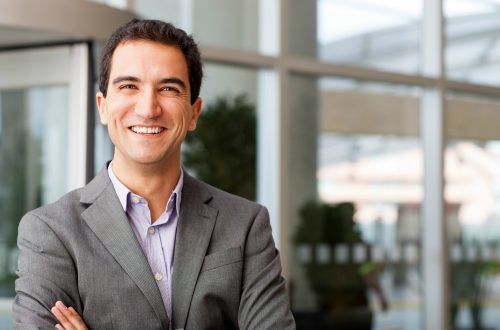Preventative Care as Punishment: The System’s Hostility to Health
The automated voice, saccharine and unchanging, assured me for the fourth time that “all representatives are currently assisting other callers.” A faint, tinny muzak seeped through the receiver, a bland accompaniment to my growing frustration. I was just trying to schedule a 16-minute annual check-up, something I’d already put off for six months, now pushing it to nearly seven. A check-up, mind you, not a crisis. Not a broken bone or a searing pain. Just… preventative care.
The irony wasn’t lost on me. We label it “preventative,” a shield against future woes, yet the act of accessing it often feels like a punishment. A penance for merely existing. You navigate the labyrinthine phone trees, spend twenty-six minutes on hold, then get shuffled through three different departments before someone finally tells you the earliest opening is in another four or five months. It’s a bureaucratic gauntlet designed not for wellness, but for managing illness. A system fundamentally hostile to the healthy, ironically teaching us that our bodies are problems to be solved by experts only once they’ve already become *actual* problems.
I remember once, during a particularly busy spell at work, realizing I was long overdue for a routine screening. It felt like another item on an already overflowing to-do list, a task I knew was important but the friction to complete it was immense. You try to book something, and the receptionists, through no fault of their own, sound harried, as if your very attempt to *not* get sick is an imposition. They offer slots that demand you take a half-day off, then sit in a waiting room for an extra forty-six minutes past your appointment time, only to be seen for less than six minutes. The waiting rooms themselves are mausoleums of anxiety, filled with the genuinely unwell, making you feel almost guilty for being there for a mere check-up. The air crackles with latent tension, a palpable unease that clings to the plush, worn chairs. It’s an environment that screams, “Something is wrong here,” not, “Let’s keep things right.”
Shifting Perspectives
This isn’t about laziness, as some might argue, or a lack of personal responsibility. I used to think that, I admit. I’d silently judge friends who “never went to the doctor,” imagining them flailing through life, oblivious to their own well-being. My perspective was skewed, clouded by a privilege I didn’t fully recognize at the time – the luxury of a flexible schedule and a relatively robust support system. But then I saw it firsthand, not just for myself, but for others.
Preserving History
Ivan’s profession focuses on meticulous preservation.
The Health Appointment Paradox
Contrasting preservation with health system friction.
System’s Toll
Ivan’s weariness with the health bureaucracy.
Take Ivan H.L., for instance. He’s a stained glass conservator. His days are spent meticulously restoring intricate designs, understanding the delicate balance of light and color, preserving fragments of history that are often hundreds of years old, perhaps 236 or 346 years old. Every hairline crack, every subtle shift in pigment, requires his focused, patient attention. His entire profession is preventative; he stabilizes existing beauty to ensure it endures for generations. Yet, even Ivan, with his profound understanding of preservation, despairs over his own health appointments. He tells me about the time he needed to get a simple blood test. He called his GP, waited nearly three-quarters of an hour, only to be told he needed to go to a specific lab six miles away, which had a sixteen-day wait for an appointment, and then an additional twenty-six days for results. “It’s like they’re actively trying to make it harder to be healthy,” he’d said, his voice laced with the weariness of a man who usually approaches decay with philosophical calm. “I fix things that are falling apart, but the system makes me feel like *I’m* falling apart just trying to stop it from happening.”
“It’s like they’re actively trying to make it harder to be healthy,” he’d said, his voice laced with the weariness of a man who usually approaches decay with philosophical calm. “I fix things that are falling apart, but the system makes me feel like *I’m* falling apart just trying to stop it from happening.”
His experience resonated with me. I once accidentally joined a video call with my camera on, totally unprepared, still in my pajamas, sipping lukewarm coffee. It was a momentary, mortifying glimpse into a vulnerability I hadn’t intended to share. That small incident underscored a bigger truth: we don’t like being caught off guard. We crave control over when and how we present ourselves, especially when it comes to our health. The current preventative care model often strips that control away. You’re forced into someone else’s schedule, someone else’s waiting room, someone else’s clinical gaze. It’s an involuntary exposure, devoid of the agency we seek in other areas of our lives.
Rebuilding for Flourishing
The system, built primarily for intervention and cure, not maintenance and prevention, has warped our understanding of our own bodies. We are taught to wait for symptoms, to react to illness, rather than proactively engage with wellness. It creates a passive relationship where we outsource our health to professionals, rather than empowering ourselves with knowledge and accessible tools. We’re led to believe that health is something *done to us* by doctors, rather than something we actively cultivate and monitor. It’s a subtle but pervasive message, reinforced by every frustrating phone tree and every long wait.
Reactive Care
(Current)
Proactive
Engagement (Needed)
This model also creates enormous financial strain, both on individuals and the broader healthcare system. Treating advanced diseases is exponentially more expensive than preventing them. Consider the cost of managing chronic conditions that could have been mitigated with early, consistent monitoring. The numbers are staggering; estimates suggest that $676 billion are spent annually on treating preventable illnesses. If just six percent of those funds were redirected towards genuinely accessible preventative solutions, imagine the societal shift. It’s a systemic flaw, a foundational oversight that continues to propagate cycles of reactive care.
The truth is, many of us genuinely *want* to be proactive. We understand the value of early detection. We want to avoid the debilitating costs and suffering that come with late diagnoses. But the current hoops we have to jump through transform a simple desire into an arduous journey. It’s the difference between walking down a well-lit path and bushwhacking through dense, thorny undergrowth. When the path to wellness is overgrown and riddled with obstacles, many simply give up, or delay until the undergrowth becomes too thick to ignore.
This isn’t just an inconvenience; it’s a barrier to a healthier future.
This is where the paradigm shift is desperately needed. We need solutions that circumvent the systemic hurdles, bringing proactive health monitoring directly to us, on our own terms. Imagine being able to take a significant step in monitoring your well-being without having to navigate a single automated phone tree or take a half-day off work. For example, understanding your risk for certain conditions, or monitoring your hormone levels, or even getting an HPV test from the comfort and privacy of your home. It’s about decentralizing preventative care, putting the power back into the hands of the individual.
The experience of my video call mishap – the unexpected visibility, the brief loss of control – it taught me that we seek agency. We desire to manage our own presentations, our own narratives. And nowhere is that more crucial than with our health. We need health care that respects our time, our privacy, and our inherent desire to be well, without the accompanying sense of being scrutinized or inconvenienced. We need a system that genuinely supports prevention, not one that makes it feel like an ordeal we must endure.
We are, after all, more than just potential patients. We are people trying to live full lives, juggling responsibilities, trying to carve out moments of peace. Our health should be an enabler of that life, not another source of stress. So, the question isn’t merely how we can encourage more people to seek preventative care. The deeper, more vital question is:
The Vital Question
How do we dismantle a system built for repair and rebuild it for flourishing, making proactive wellness as effortless and empowering as breathing?


